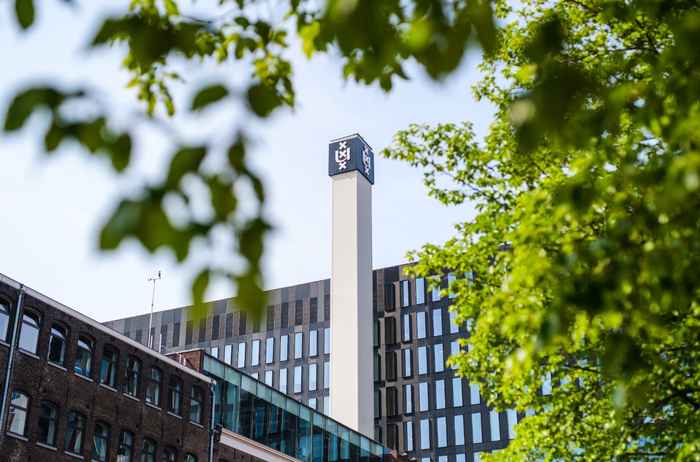UvA takes 3rd place in national sustainability rankings for 2023
1 June 2023

The SustainaBul
The annual SustainaBul rankings are organised by Studenten voor Morgen [Students for Tomorrow]. Educational institutions are evaluated based on how they incorporate the themes of sustainability into their education, research and operations. The UvA was also among the top 3 in 2021 and took 4th place in 2022. This year, first place went to Van Hall Larenstein University of Applied Sciences in Leeuwarden.
Sustainability at the UvA
Scientists at every faculty at the UvA are conducting research aimed at increasing sustainability. In 2022, we launched the UvA Sustainability Platform (USP). This community brings together UvA researchers and their ambitions, knowledge and initiatives for the purpose of interdisciplinary sustainability research. Last year, for example, participants researched microplastics in washing machines. But they also started a discussion on research collaborations with partners from the fossil-fuel industry.
Sustainability grant
The UvA wants each and every degree programme to include attention for sustainability. Through the wide range of electives and minors on offer, students also have the opportunity to develop into pioneers in the area of sustainability. This range is being continuously expanded. The sustainability grant helps lecturers develop sustainability-related courses. The UvA Green Office has compiled a list of all electives and courses with a focus on sustainability.
Reducing our footprint
By 2026, we want to have reduced our ecological footprint by 25% as compared to 2019. To allow us to enact the most effective measures possible in service of that goal, we have mapped out the footprint of our university. Most of our energy consumption comes from heating and cooling our buildings. With that in mind, we aim to make our buildings completely fossil-free by 2040. And we are on the right track: the Science Park will become gas-free in 2025 and Roeterseiland will follow shortly after. See this article to learn more about these efforts. The smaller measures we take add up, too: we are switching to a sustainable bank and the vegetarian and vegan options in the cafeteria are being expanded and offered at a discount.